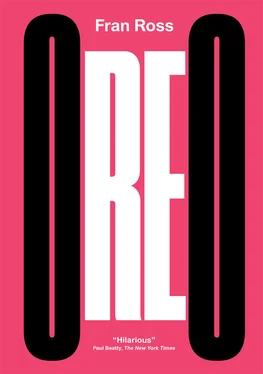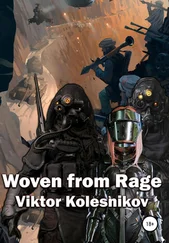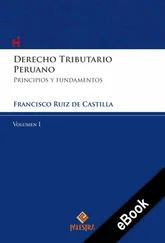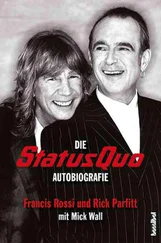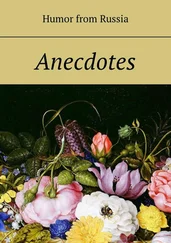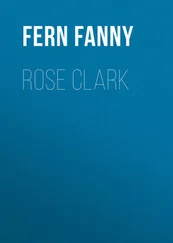Oreo on the number 5 bus
Within a few minutes after she got on, Oreo realized she was riding the famed crazy ladies’ bus. She had heard about it in Philadelphia. She was in luck. There were two meshuggenes aboard. One was tall, sharp-boned, and sharp-tongued. Her dark-blue dress with white polka dots snagged on her like a rag on a splinter, tail ends of sentences shredded from her mouth. “… away from me!… shit hell alone!” she raged as she pushed her way to the back, where she stood blocking the aisle. To Oreo, she looked like a Penelope.
The other was a short, gray-haired woman sitting near the front of the bus. She showed one broken middle tooth when she smiled (a curable smile). There was an unremitting smell of aluminum chlorhydroxide about her. Oreo guessed that the woman always washed and dressed as if she were going for a thorough physical after which she would be run over by a car and strangers would see her underwear. If true, she was as normal as the rest of the people on the bus, and there was no hope — except, of course, for the smile. She wore a crisp dress of green, white, and blue stripes and had elastic bands on her wrists. Her shoes were white, with a small bas-relief floral design in pale green and pink on the toe. A Sophie, perhaps? The conversation piece of her outfit was her shopping bag. It was kraft with five thin red wave-design lines across the top. On it floated a message printed neatly in red crayon, beginning on the top wave:
WHO IS USING ME AS SOME KIND OF A SCREEN AND EVERYONE THAT IS OPPRESSED I HAVE TO LOOK AT BECAUSE PEOPLE WANT THEIR AILMENTS ON THE SCREEN. I CAN’T TALK TO ANYONE BUT IT’S HEARD. MY ONLY BROTHER IS 71 YEARS OF AGE AND VERY SICK AND IF I VISIT AND TALK ON THE PHONE THE CONVERSATION IS HEARD. ISN’T THAT INFRINGING ON MY PRIVACY??? I’M NEAR 64 YEARS OF AGE AND IT’S VERY NERVE RACKING. NO ONE EVER EXPLAINED TO ME WHAT IT IS.
She seemed generally in good spirits, but occasionally she would clutch her wrists and cry, “Ow, ow,” or look as if she were about to weep. But the cry of pain, the mask of sorrow were momentary. An instant later, she was smiling again. She had a well-developed social consciousness. She talked to the air space in front of her about poor people, Vietnam, and unemployment.
Between Sophie and Penelope the bus passengers did not know where not to look. Some tried surreptitious eyeball rolls from side to side, most stared straight ahead and pretended the two women were not there. Penelope was too involved with extending her sovereignty to be aware of the effect she was having on the socially conscious Sophie, who was amused by Penelope’s preoccupation with manifest destiny, particularly whenever Pen delivered herself of a choice piece of verbal territorial incursion. Sophie had obviously diagnosed Penelope’s trouble as fallen arches. Several times Sophie obliquely addressed her with the same words. “I didn’t work today,” she would say to the air space. “I just rode around the city. You can have my seat.”
“… out of here!” said Penelope. “… off me!”
At which, Sophie would cut short a giggle to renew her comments on society’s unfortunates. “The hoi polloi,” she said. (Oh, Oreo thought, sympathetically noting the repetition of the article, she just stammered in two languages.) “All that education, and what good is it? Now they can’t find jobs.” She clucked in sympathy. “I don’t give to churches, but if I have a spare dollar, I give to veterans’ organizations.” She read aloud a headline across the aisle about a bank robbery, then said, “They weren’t educated, but they had their omens and their voodoo. They had the right answers. They knew, they knew. Tea leaves. Believe me, I hit four seventy-eight for a couple hundred dollars. They knew, they knew. Ben Franklin said, ‘Early to bed, early to rise.’ They don’t even know how to say that today.”
As the bus passed Sixty-second and Broadway, someone said approvingly, “Look at that. The Jewish Guild for the Blind doesn’t have to wash its windows — nobody has to see out.”
The man to Oreo’s left was reading the front page of the Daily News . When he flipped the paper to scan the back sports page, Sophie read the front-page banner headline aloud. Oreo remembered that the headline had been set up like this:
Porno Panel:
END ALL BANS
ON ADULT SMUT
To Oreo, this headline was a comment on itself. Sophie seemed reluctant to add anything to her reading of the banner head. It was not one of her subjects. More to her taste was the headline over a story about two starved, skull-fractured children whose mother was under observation at Bellevue:
FIND BODIES
OF 2 TOTS:
TEST MOM
Oreo had read this story over the shoulder of the woman to her right. Porno panel or no porno panel, Oreo considered the use of “Tots” and “Mom,” in the circumstances, particularly obscene, the space limitations of tabloids notwithstanding.
“Poor woman,” began Sophie. But before she was well into her desultory views on battered children, mental illness, and exorbitant hospital rates, she had to break off to watch Penelope spear her way through the crowd and get off by the back door.
“… out of here!… off me!” said Penelope. Oreo watched as she posted herself in front of the post office (Ansonia station), then abandoned her post just in time to board a bus that had been tailgating the number 5 for several blocks.
The people at the back of the bus were noticeably relieved at Penelope’s departure. They talked among themselves, survivors after rescue. The people at the front of the bus stared enviously toward the rear. They still had Sophie. But with Penelope gone, Sophie quieted down. She stopped reading headlines and was content with clutching her wrists several times for a few modulated “Ow’s” and tapping lightly on her shopping bag.
As the bus skirted a park — which Oreo’s booklet told her was Riverside — Sophie got up to leave. She went to the back door, and with a sedate “Out, please,” she was gone.
All was quiet for a few more blocks. Then an elderly gentleman with one bad eye got up to leave. Oreo was sure it was Mr. Sammler. Her hunch was confirmed when he was followed off the bus by a dapper young man in a camel’s hair coat.
A few blocks later, Oreo herself got off the bus. She walked to West End Avenue, found the address she had written down, and told the doorman she wanted to see Schwartz.
“Schwartz? In four-B?” asked the doorman.
“Is that the only Schwartz in the building?”
“Yeah.”
Then, of course, dummy, thought Oreo. “Say Christine is on her way up.”
The doorman buzzed 4-B and gave his message.
“Send her up,” said a deep voice over the intercom as Oreo got into the elevator.
A few minutes later, Oreo was back downstairs. The Schwartz in 4-B was too young to be her father. Besides, she was Chinese.
Oreo on Broadway
She stopped when she came to a bar. She went in, walked straight to the back, went to the ladies’ room, peed, and walked out. She was always disconcerted when she had to do this — walk into a place where she was considered a minor. Fortunately, because of her constant bullshit, she was often disguised as an adult. On the occasions when she was challenged and had to admit that she was a minor, Oreo was deeply embarrassed. She did not scruple going into a bar and not ordering anything. She drank only fine wines and Pepsi on the rocks. What is more, she was basically tight. She did not mind relieving herself when all around her knew that that was all she was going to do. Any pot in the storm — the chestnut she had trotted out for Waverley — was her motto for these occasions. She had other, even worse puns for other occasions. But to call Oreo a minor was, slowly and caerphilly, to drive a shaft into the pits of her cheeseparing soul. She did not consider herself a minor at or of or in anything.
Читать дальше
